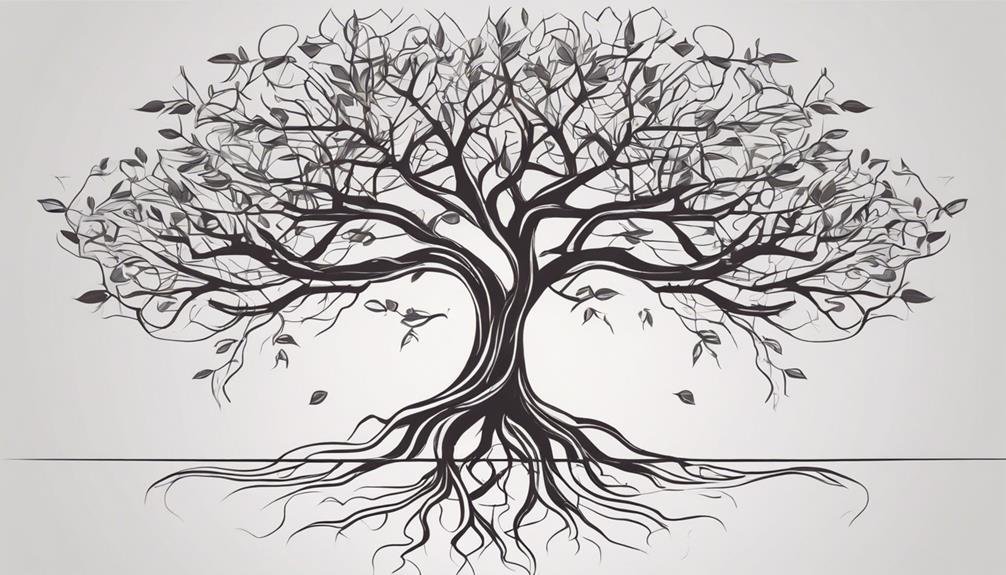To master the art of obtaining skills, start by setting clear goals that motivate and guide you. Embrace the learning process with a growth mindset, intentional practice, and diverse resources. Utilize online courses, engage with mentors, and participate in discussions for a well-rounded mastery. Practice consistently, track progress, and prioritize quality learning through deliberate practice. Reflect on your journey, identify areas for improvement, and adjust your strategies accordingly. By following this deliberate path, you'll pave the way for skill mastery and continuous growth.
Key Takeaways
- Establish clear objectives and roadmap for skill development.
- Cultivate a growth mindset and engage in deliberate practice.
- Utilize diverse learning resources and materials.
- Reflect on progress, adjust strategies, and set manageable milestones.
- Practice consistently to enhance muscle memory and long-term retention.
Setting Clear Goals

Mastering the art of acquiring skills begins with establishing clear objectives. Learning thrives when you have a roadmap to guide your efforts. Defining goals not only provides motivation but also acts as a compass in your skill development journey. By breaking down complex skills into manageable milestones, clear objectives make the learning process less challenging. When you set specific targets based on your current skill levels, you enhance your focus and productivity. Embracing a growth mindset, you understand that skill development is a hands-on experience that requires dedication and perseverance. Aligning your goals with your long-term interests ensures that you stay committed to mastering the skills you desire. Remember, setting clear objectives is not just about the destination but also about the growth and transformation you experience along the way.
Embracing Learning Process
Beginning the journey of acquiring new skills involves more than just setting goals; it requires an acceptance of the learning process itself. To truly excel in skill development, it is vital to nurture a growth mindset that welcomes challenges and views setbacks as opportunities for learning. Engage in intentional practice, focusing on refining specific skills and addressing weaknesses head-on. Remember to utilize diverse resources and learning materials to broaden your understanding and enhance your skill set.
Reflect on your progress regularly to track your development and make any necessary adjustments along the way. By embracing the learning process wholeheartedly, you open yourself up to endless possibilities for growth and improvement. Stay committed to your journey, stay curious, and stay open to new ways of learning. Remember, mastering skills is not just about reaching a destination but about enjoying the journey of continuous improvement and self-discovery.
Utilizing Diverse Resources

Enhance your path of skill acquisition by tapping into a diverse range of resources that cater to your individual learning preferences. As you commence on your learning journey, consider exploring new online courses and platforms that offer structured lessons tailored to your needs. Engaging with mentors and learning communities can provide valuable insights and constructive criticism to deepen your understanding of the skill you're developing. Participating in online discussions and forums related to your area of interest can expose you to new perspectives and help you exchange knowledge with like-minded individuals.
Make use of recommended resources such as Coursera and Duolingo to supplement your learning experience and reinforce your comprehension of new skills effectively. Embrace a variety of learning materials to guarantee a well-rounded approach to skill mastery. Remember, lifelong learning is a journey, and utilizing diverse resources is key to continuous growth and development.
Practicing Consistently
As you explore the array of resources available to enhance your skill acquisition journey, it's important to understand the pivotal role that consistent practice plays in mastering any skill. To truly excel in learning new skills and mastering the art, building a routine that prioritizes deliberate practice is essential. Here are three tips to help you practice consistently and effectively:
- Establish a Practice Schedule: Set specific practice sessions in your daily or weekly routine with clear goals and milestones. This helps boost motivation and productivity, keeping you on track towards skill mastery.
- Track Your Progress: Consider journaling your practice sessions or using apps to monitor your advancement. Tracking your progress not only helps you stay accountable but also allows you to identify areas for improvement.
- Engage in Deliberate Practice: Focus on quality over quantity by engaging in deliberate practice. This method, done consistently over time, enhances muscle memory and reinforces learning for long-term skill retention.
Reflecting and Adapting

To truly excel in your skill acquisition journey, it is necessary to incorporate reflection and adjustment into your practice routine. Reflecting on your learning experiences allows you to understand what worked well and what could be enhanced. It helps you identify your strengths and areas that need enhancement in your skill development process. By stepping out of your comfort zone and reflecting on your progress, you create manageable milestones for improvement.
Adjusting is equally essential in skill development. It involves modifying your strategies and behaviors based on feedback and changing circumstances. Adapting allows you to remain flexible and responsive to new challenges that arise along your journey. It empowers you to grow and evolve continuously as you work to master new skills.